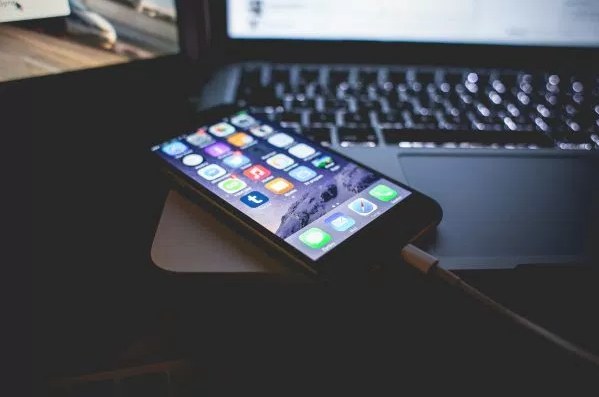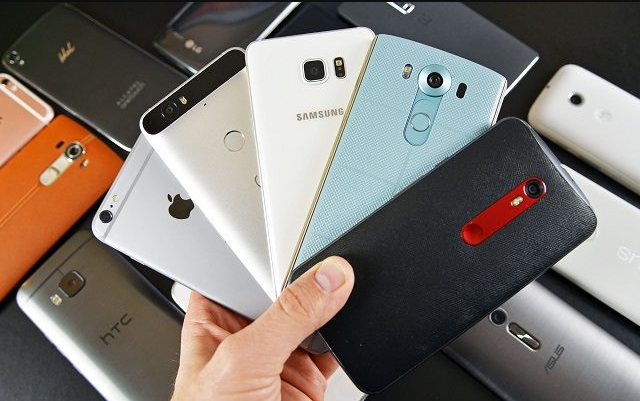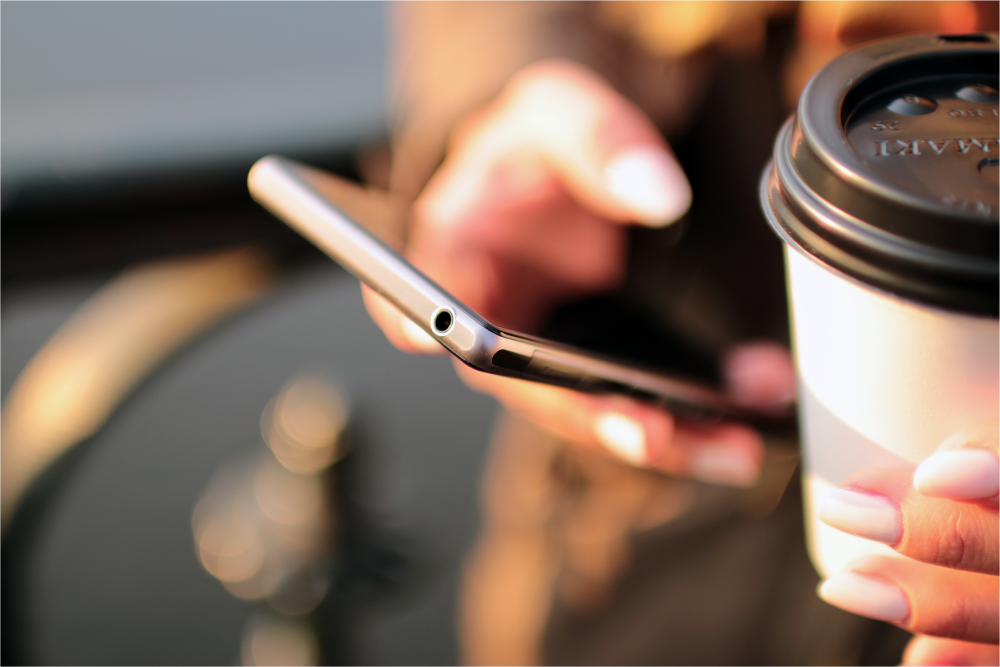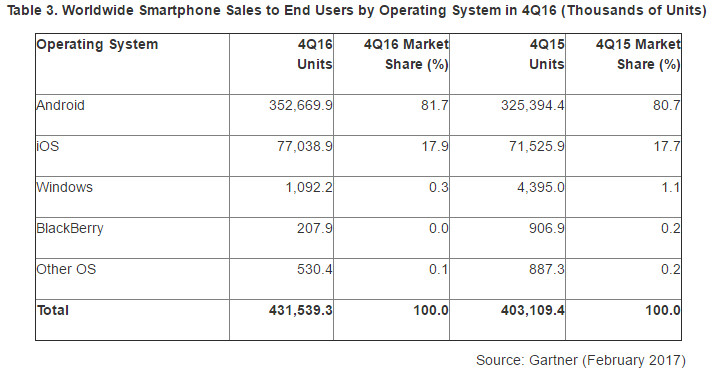I know it sounds ridiculous but it's true! Thanks to Android Authority, we have found something for you today that's so different from every other smartphone out there that it's definitely worth a look.
There are two things that you need to understand about the Banana Phone.
• It's not an actual banana (which I am sure you had guessed)
• It's not exactly a standalone device
The Banana Phone is more of a Bluetooth communicator than a phone as it does require an actual smartphone to connect to, before voice communication is possible. It has a volume up, a volume down and even a Home button on it. With a battery life of roughly 10 hours (talk time) and a voice assistant that lets you make call from your banana, it might just be worth checking out at $40.
If you want one, the only problem is that you may have to wait till September. It's a crowd fund project by the way and will only go into production if they manage to reach their goal. In case you are wondering why you want to buy it, in spite of not being able to think of any logical use for it, join the club!
Saikat Kar (tech-enthusiast)

These days, it isn't rare to take our mobile devices with us everywhere. Mobile phones and tablets have expanded their abilities at incredible rates. Now, the power under our fingertips is vaster than the technology that sent the Apollo missions to the moon. That is an incredible leap forward that, along with the Internet's global community has completely changed the way that humans interact and live.
The digital age has made people available 24/7, no matter where they are. People can communicate using cutting edge chat-apps that even 15 years ago would have required a powerful desktop PC (remember AOL?). Now, we can chat to someone in Indonesia from Seattle at the drop of the hat - and then be chatting to someone in Ukraine moments later - all while waiting for a train (thanks to 3G or public WiFi).
Digital Drawbacks & Technological Threats
Sadly, along with the ability and will to be connected, also comes some very serious drawbacks. Modern problems. Digital threats that in some ways make people more vulnerable than ever before in history. Being connected leaves a trail and these digital footprints code for who we are like digital DNA. The data we create is highly personal and for that reason that data is incredibly valuable and people must seek to protect it.
What we actually find is a decrease in the level of scrutiny we apply to our online presence. Facebook, Twitter, Instagram, Pinterest and the plethora of other social media platforms are all there for us to use, but that comes at a cost. We share our intimate moments. We share where we are, when we're away from home, when we're going on holiday, and often leave very easy breadcrumbs on exactly what we're doing, and when we're out, and where to find us. We share details that we wouldn't share with friends or family face to face, but saving them in a public forum is acceptable for millions of us. These posts, and images stay there forever. We think so little of our own private information that we give away lots of our information for free, without even thinking about it.
The inter-connectivity of devices also throws up additional concerns. We login to everything, on everything. Our phones have Facebook, our Facebook is used as a logon tool for many other services. We input our date of birth to gain access, our e-mails, our interests, likes, hobbies, names, friends, and more at an increasing rate. Our entire lives are online somewhere. Where people feel more at home with their mobile devices, we also login to our banks, and provide our financial information. The level of trust that we put into our devices, and the amount of digital data that we're inputting to those devices is increasing, drastically.
Governments, Internet Service Providers, advertisers, corporations, organizations, hackers, and cybercriminals, all want a piece of that pie. The technology has crept up on us quickly and only more recently have people come to accept that data should be considered a form of currency.
Whether it be to protect data from cybercriminals - or the government - the only way to be truly secure is for people to take control of their own digital footprints. Due to the value of personal data, everyone should make efforts to protect it. The sad truth is, that because that data is so valuable everyone is trying to get at it, but fewer are trying to protect it.
Personal cybersecurity
The first thing that people must realize is that mobile devices are just as vulnerable, if not more so, than PCs. In addition, the gap between Apple and Android has closed and now it is common to find malware for both. In fact, in some ways the Open Source nature of Android (as opposed to Apple's proprietary closed source environment) is allowing for encryption apps to pop up at a faster rate: things change.
These days, malware, viruses, spyware, and trojans all offer hackers methods for intercepting data - and their availability online to ‘script kiddies' means that cybercrime is at epidemic levels. The result is an elevated risk of fraud, loss of earnings - and perhaps worst of all - identity theft. For these reason, people need to take personal cybersecurity seriously and must seek to protect themselves and their devices. The most basic step is to make sure that the apps we install on our devices are secure, and that we always update them with the latest security patches and updates.
Third party and untrusted apps might be tempting, but the reality is that they could be malevolent. For this reason, people should to stick to trusted apps from known vendors and app stores. Even on official distributors such as Google Play Store it is possible to come across malicious apps.
For this reason people should take extreme care when downloading apps. Before you agree to install the app, check the permissions carefully. If the app wants access to things it doesn't really need then think twice before installing it. Why does a torch app want access to your GPS location and all of your contacts? If the requests don't seem reasonable simply don't download the app.
Remember that data is a currency, so if an app says it is ‘free' maybe you are actually paying with your data? In some cases, it might be worth paying a pound for a torch app that only requires access to the light on your phone, than to accept the free one that wants access to your entire device.
The Big Public WiFi Threat
Alongside smart devices, which allow us to be connected non-stop, in recent years there has been an explosion in the availability of public internet hotspots. Those hotspots provide high speed connectivity when people are out and about. The advantage of logging onto public connections is that people get to save their mobile data (if they have data limits).
What many people might not realize, however, is that public WiFi can be a security risk. When connected to public networks people's devices are vulnerable to having their data intercepted by another user that is logged onto the same router. This problem is the same on any WiFi - including shared home networks - so if you live in a big house where a lot of people regularly take the password from the router - you could also be at risk. The best solution for the problem is a VPN service.
A VPN service encrypts all the data between a phone, or tablet, and the VPN's servers. The result is that nobody on a public WiFi (or even on a fake hotspot controlled by a cybercriminal) can ‘sniff' the subscriber's data, as that data is encrypted.
The best VPNs provide strong military grade OpenVPN encryption, but many don't. With different levels of protection, and different services providing different benefits (and disadvantages), what you're specifically looking for can change the VPN service that you are looking for. Do you want faster speed, but are willing to accept a smaller number of geo locations, or do you need security at all costs, including speed and price? As such, it's important to do research about which VPN to use.
Other Levels of Protection
McAfee, Norton, AVG. At the launch of the internet, it's rare that individuals would have been desperate for anti-virus. There simply weren't as much malicious code flying around, but now, with an always-on internet antivirus is no longer seen as that "additional level of security that might sometimes help", or for those who delve more often into virus rife areas of the net. Now, things are different. It's rare for new computers, and new operating systems to not include some form of anti-virus, even for a month's trial while you set your computer up ensuring that you're not infected at this vital stage of life of your computer.
Not only is antivirus an integral part of your computer system, but firewalls are also included in the same package to help keep your computer safe. The problem arises that we're using our PCs, and our Laptops less and less, and using our mobile phones, and tablets more and more. There's a huge disconnect between the level of security on our larger devices, and our mobile phones, but we're still storing our intimate data on unprotected devices.
This could be a bit more understandable if protective services weren't easily available for mobile devices. Antivirus, firewalls, and password protection are just as available for devices, and the larger firms often provide multi-device deals, permitting several devices to be covered by the same services.
As well as more digital based protection, there's a large amount of physical ways to protect the data on our phones as well. Phone manufacturers are constantly in an evolutionary arms race with chancers who find new back-door entrances into devices. This has led to an increase in the amount of protection required to unlock a phone. Rather than just a pin, we now have patterns, passwords, swipe to unlock, fingerprint scans, google sign-ins. These simple methods help to keep that data secure from prying hands.
Our data, and our lives are much more mobile than they were before. Keeping up with that level of change is not only important: it's imperative.

Several voices both inside and outside the smartphone industry have been quoted saying that handsets have reached the pinnacle of their evolution in their current form. Today, smartphones are more powerful than the average desktop PC was a few years ago, millions of times faster than the computers used to send a man to the moon. At the same time, statistics have shown that the majority of smartphone owners don't even use a fraction of their handsets' processing power. The majority of smartphone owners use them to play games, known to be the most demanding type of smartphone apps, but most of the time these games are simple, casual titles, mobile pokie games, word games, and their likes, hardly a challenge for even a two-year-old handset.
Considering the lack of exciting news on the smartphone market, and the release of a great variety of high-performance and affordable smartphone models, it seems safe to say that we should reconsider our future smartphone purchases and focus on accessibility rather than hype.
Samsung Galaxy S7, the best example
Samsung's Galaxy S7 was surrounded by a lot of excitement before its release in February 2017. When it hit the shelves, though, users couldn't hide their disappointment with the handset. Compared to the previous year's flagship phone, the Samsung Galaxy S6, the S7 failed to produce any significantly new and exciting features. It had the same size screen with the same resolution and pixel density, it had a slightly faster system-on-a-chip, a newer GPU, it had 1GB of extra RAM and a slightly improved performance. In short, nothing that would've justified switching from the Galaxy S6 to the Galaxy S7.
Now let's take a look at another Samsung model released in 2016, the J7. Compared to the same Galaxy S6, it brought forth several improvements, including a newer chipset, a larger screen, a dedicated MicroSD slot (the S6 didn't have one), FM radio (something many of us still appreciate today), a larger battery with longer battery life, and a price tag that made it much more affordable at the time than the previous year's flagship model. In short, a phone with enough performance to be a perfect choice for everyday use, without the need to sell an arm and a leg to buy it.
The performance gap
The performance gap between "affordable" and "flagship" handsets becomes narrower every year. One of this year's more affordable smartphone models, the Galaxy A7 (2017), has a price tag almost $300 lower than any of last year's Samsung flagships, coupled with a performance that's not too different compared to these models. An average user will surely not notice the difference in performance between the two but welcome the price difference nonetheless.
Considering all of the above, I think it's safe to say that we shouldn't focus on flagship models anymore. They might be the ones surrounded by the biggest hype in the press but this doesn't make them the right ones for us - and they shouldn't be the models we desire the most.

Source: Pexels
With the number of applications and basic functionality only increasing, people are spending more and more time on their smartphones.
Checking your email and instant messages, surfing the Internet, watching videos, posting on social media sites, and playing video games can be great pastimes and studies have shown today's smartphone users in the United States are doing all of that, spending about one-third of their waking hours on the phone. Unfortunately, most of this activity is not very productive, but there are ways to turn it all around and get your smartphone working for you.
In fact, there are literally dozens of smartphone apps on the market where users can earn real money and rewards, instead of just wasting time.
Live Life On The Go
Imagine an app that paid you for going about the business of your day and chronicling your activity the same way you already do on social media.
‘Gigwalk' is such an app for iOS and Android users. This app pays you to do things like visit certain retail outlets or restaurants in your area. The catch is you might have to take pictures or make videos about the experience, but if you're as active on social media as most smartphone users, you're probably already doing that anyway.
Play Online Poker
Playing online poker is one of the original ways to earn money on the Internet. Considered a skill game more than just a gamble, there's millions of dollars being fought over on online poker sites every week.
Online poker giant PokerStars offers a full slate of mobile apps to help you brush up on your poker skills and play the game on the go. There may be some risk involved, but the rewards can be plentiful.
Watch Videos
If you're interested in the latest games and apps for your smartphone, you might already be watching promotional videos without getting paid for it. ‘AppTrailers' can make sure that never happens again. This app offers users credits for watching videos of different app promotions, including videos from some of the most popular video game designers in the market today, like EA and Rovio.
The app is free and the more videos you watch the more points you earn and the points are redeemable for things like PayPal cash and Amazon Gift Cards.
‘The Watch & Earn' app is another option. This app gives users coins for watching promotional app videos as well as downloading the apps themselves. The coins can be traded in for gift cards from places including Amazon and Google Play, as well as PayPal cash.
Download Apps
If you're downloading and checking out all the latest apps for your smartphone already, there's no reason not to get paid for it. ‘AppBounty' pays out gift cards to users who download the apps it suggests. The rewards include gift cards for the Playstation Network, XBox, and iTunes among others.
Similarly, ‘Tap Cash Rewards' hands out Skype, Google Play, and Target gift cards to users who download apps and log in every day.
‘Cash Gift - Free Gift Cards' is another free app that takes earning money by downloading apps to the next level. Not only does the app offer the opportunity to earn by downloading apps and watching promotional videos, but it will pay you for completing certain tasks as well. ‘Cash Gift - Free Gift Cards' offers gift cards for the Google Play Store, Amazon and PayPal and the app claims it has paid out more than $1 million in cash to users already.
Take Surveys
They say opinions are like noses, as everybody has one. Apps like ‘Survey Mini' and ‘Surveys On The Go' can make sure you get paid for them.
‘Survey Mini' helps users earn money by answering survey questions about locations they go to. It works in conjunction with the GPS on your smartphone.
In the meantime, ‘Surveys On The Go' hosts a number of surveys about the latest TV shows and movies, or specific products and shopping experiences.

In a prediction made in 2013, Gartner had declared that the Windows Mobile OS will cross the iOS in terms of market share by 2017. It is 2017, the results are out and the Microsoft's Windows Mobile OS is currently sitting at the third position with 0.3% of the market share while Apple's iOS continues to occupy the second position with 17.9% market share. As always, Android sits at the top with an overwhelming 81.7% market share. Note that all of the statistics mentioned here are based on Q4 2016 results only.
It is actually quite sad to see that Blackberry's market share isn't even there. We kid you not! It's actually not there (0.0%) as you can see in the screenshot above. iOS managed to make a 0.2% improvement in a quarterly comparison with Q4 2015, while Android gained an additional 1% in the same comparison. As 99.6% of all new smartphones sold in the last quarter happens to be either an iPhone or an Android powered smartphone, it is pretty safe to say that unless something miraculous happens, this is how the market will stay like for the foreseeable future.
Saikat Kar (tech-enthusiast)
© 2023 YouMobile Inc. All rights reserved





